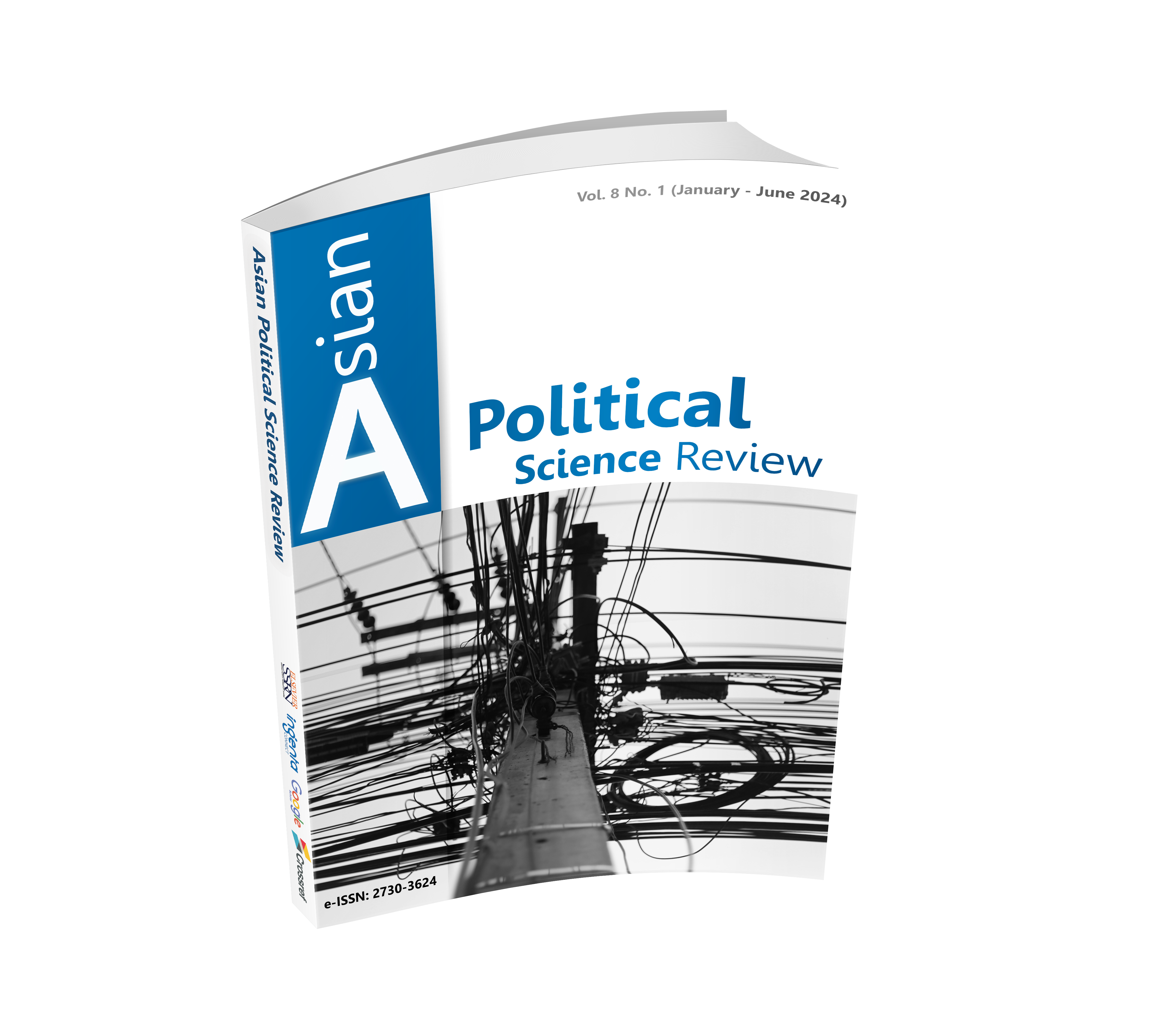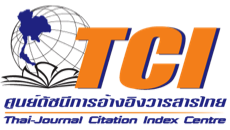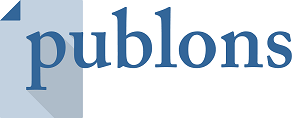APPLYING THE PRINCIPLES OF DIFFUSION THEORY TO DRIVE INTERNATIONAL SDGS TOWARDS SUSTAINABLE DEVELOPMENT AT THE LOCALIZING IN THE FORM OF THE BCG MODEL
DOI:
https://doi.org/10.14456/apsr.2024.4Keywords:
SDGs, BCG, Diffusion Theory, Economic InequalityAbstract
This research aims to study and investigate how to drive the achievement of specific Sustainable Development Goals (SDGs) through the localization of the BCG model in Thailand by applying the principles of diffusion theory. The literature review technique is a research methodology. The SDGs provide a framework for international development that encompasses economic, social, and environmental dimensions. Driving the SDGs requires cooperation from all sectors, including governments, the private sector, and communities. Governments must formulate policies and measures that support the SDGs. Considering its societal and environmental impact, the private sector should conduct business responsibly. At the community and local levels, active involvement is crucial in advancing SDGs that align with Community-Based Development. Creating meaningful employment is essential for reducing economic inequality and increasing social inclusion. Sustainable production and consumption practices will focus on producing goods and services that efficiently utilize natural resources and energy without harming the environment.
Downloads
References
Aroonsrimorakot, S., & Laiphrakpam, M. (2024). Green Supply Chain Management (GSCM) and Circular Economy (CE): A Rapid Review of their Conceptual Relationships. Asia Social Issues, 17(3), e259742.
Artharn, D., & Jaroenwisan, K. (2022). Gastronomy Tourism Development Based on BCG Economic Concept. Valaya Alongkorn Review (Humanities and Social Science), 12(2), 276-291.
Bhandari, R., Xue, W., Virdis, S., Winijkul, E., Nguyen, T., & Joshi, S. (2023). Monitoring and Assessing Urbanization Progress in Thailand between 2000 and 2020 Using SDG Indicator 11.3.1. Sustainability, 15, 9794.
Chaiprasert, N. (2022). Roles of Locality in Smart City Management. Journal of Palisueksabuddhaghosa Review, 8(1), 71-84.
Chaiya, C., & Ahmad, M. (2021). Success or Failure of the Thai Higher Education Development—Critical Factors in the Policy Process of Quality Assurance. Sustainability, 13(17), 9486.
Chanchitpricha, C., & Fischer, T. (2022). The role of impact assessment in the development of urban green infrastructure: a review of EIA and SEA practices in Thailand. Impact Assessment and Project Appraisal, 40(3), 191-201.
Chiba, M., & Katsuma, Y. (2022). The Sustainable Development Goals (SDGs) as international norms. In P. Bacon, M. Chiba & F. Ponjaert. (eds.). The Sustainable Development Goals: Diffusion and Contestation in Asia and Europe (pp. 3-12). London: Routledge.
Churat, T., & Laddamaneeroj, K. (2022). APEC and the Hidden Agenda that is not mentioned. Retrieved from https://theactive.net/read/apec-untold-agenda/.
Dang, V., & Wang, J. (2022). Building competitive advantage for hospitality companies: The roles of green innovation strategic orientation and green intellectual capital. International Journal of Hospitality Management, 102, 103161.
Deo, S., Hinchcliff, M., Thai, N., Papakosmas, M., Chad, P., Heffernan, T., & Gibbons, B. (2023). Educating for the Sustainable Future: A Conceptual Process for Mapping the United Nations Sustainable Development Goals in Marketing Teaching Using Bloom’s Taxonomy. Journal of Marketing Education, Special Issue, 1-13.
Edyvean, R., Apiwatanapiwat, W., Vaithanomsat, P., Boondaeng, A., Janchai, P., & Sophonthammaphat, S. (2023). The Bio-Circular Green Economy model in Thailand - A comparative review. Agriculture and Natural Resources, 57(1), 51-64.
Fontana, E., & Siriwichai, P. (2022). Understanding transgender persons' careers to advance sustainable development: The case of Trans for Career Thailand. Sustainable Development, 30(6), 1573-1590.
Irvine, K., Likitswat, F., Sahavacharin, A., Suwanarit, A., Lertwarapornpong, T., & Chitwatkulsiri, D. (2023). The Agrihood Design: valuation of ecosystem services for NbS visions in peri-urban housing estate development, Bangkok, Thailand. Journal of Architectural/Planning Research and Studies, 21(1), 115-140.
Jitto, P., & Nakbanpote, W. (2023). Food waste management in Thailand for sustainable development. In. M. Narasimha, V. Prasad, & M. Smol. (eds.). Sustainable and Circular Management of Resources and Waste Towards a Green Deal (pp. 117-136). Amsterdam: Elsevier.
Kaewsa, W., Khawda, N., Saenluanginn, J., & Boonkiattiboot, R. (2024). Economic Health Policy Evaluation in the Context of Health and Cultural Tourism under COVID-19 Situation under Public Health Measures: A Case Study of the Chiang Khan Sandbox, Loei Province. The Office of Disease Prevention and Control 9th Nakhon Ratchasima Journal, 30(1), 56-68.
Kaewsiya, P. (2023). Soft power (5F) Type for Various Apply Affecting Decision Making to Travel to Nakhon Si Thammarat Province. Thai Media Fund Journal, 2(2), 54-82.
Kanthamanon, P. (2022). Sustainable Energy Management at KMUTT Thailand. Journal of Sustainability Perspectives, 2, 224-229.
Khajuria, A., Atienza, V., Chavanich, S., Henning, W., Islam, I., Kral, U., & Li, J. (2022). Accelerating circular economy solutions to achieve the 2030 agenda for sustainable development goals. Circular Economy, 1(1), 100001.
Kiatchanon, W. (2022). National Strategy and National Development Policy. Journal of Social Science for Local Rajabhat Mahasarakham University, 6(4), 319-326.
Kittikulphan, C. (2022). Good Practice Guideline for Effective Human Resource Management. Journal of Professional Routine to Research, 9(1), 1-10.
Krasae-in, A., Sanoamuang, P., Trirutwong, N., & Rodjanathum, N. (2022). The Developpment of Framework of Product Design for Creative Tourism with BCG Guideline. Institute of Culture and Arts Journal, 24(1), 122-136.
Lakul, J., Sridee, S., Panvarvuttrakul, H., & Chantamas, M. (2023). Communication of Metaverse Innovation Policy for Koh Samui Tourism. Journal of Social Science and Cultural, 7(6), 354-367.
Meksathit, A., & Laohavichien, T. (2023). Impact of Green Economy on Clean Energy Sustainable Development in Energy Industry. Rajapark Journal, 17(50), 181-199.
Nakapreecha, N., Pongthanaisawan, J., & Wangjiraniran, W. (2021). Plausible Scenarios for Thai Energy Businesses in the Next 30 Years. Frontiers in Energy Research, 8, 590932.
Namahoot, K. (2018). An analysis of Digital Banking Adoption using Diffusion of Innovation Theory. Warasan Phuettikammasat, 24(2), 43-64.
Nelles, W., Visetnoi, S., Middleton, C., & Orn-In, T. (2022). Higher education institutions, SDG2 and agri-food sustainability: lessons from Chulalongkorn University and Thailand. Environment, Development and Sustainability, 24, 10975-10996.
Norsuwan, T., Utthasuk, K., Punyasai, T., Saltikulnukarn, T., Chaima, R., Suppakittpaisarn, P., Yaipimol, E., Surinseng, V., Charoenlertthanakit, N., & Kaeomuangmoon, T. (2021). Urban Agriculture and BCG Economic Model. Journal of Agricultural Research and Extension, 38(3), 100-116.
Nualnoom, P. (2022). Food self-sufficiency of tourist attraction site: a case study of Phang Nga Province, Thailand. Environment, Development and Sustainability, 24, 10233-10253.
Office of the National Economic and Social Development Council. (2018). National Strategy (2018-2037). Bangkok: Office of the National Economic and Social Development Council.
Oliveira‐Duarte, L., Reis, D., Fleury, A., Vasques, R., Filho, H., Koria, M., & Baruque‐Ramos, J. (2021). Innovation Ecosystem framework directed to Sustainable Development Goal# 17 partnerships implementation. Sustainable Development, 29(5), 1018-1036.
Pechpakdee, P. (2022). Community Solid Waste Management based on Symbiosis and Circular Economy Concept towards Sustainable Waste Management through Urban Management Dimension. Journal of Architecture, Design and Construction, 4(2), 13-29.
Photisawang, Y. (2022). The implementation of BCG Model: a case study of Community Waste Management Center, Lam Hoei subdistrict, Don Tum district, Nakhon Pathom province. Master of Public Administration Thesis, Chulalongkorn University.
Phulkerd, S., Ngqangashe, Y., Collin, J., Thow, A., Schram, A., Schneider, C., & Friel, S. (2022). Moving from silos to synergies: strengthening governance of food marketing policy in Thailand. Globalization and Health, 18, 29.
Pimpa, N. (2023). Sustainability training in business education in Thailand. Cogent Education, 10(2), 2245627.
Poocharoen, O., & Boossabong, P. (2023). Transition and prospects of Thai policy analysis. In Policy Analysis in Thailand (pp. 320-336). Bristol: Policy Press.
Rogers, E., & Cartano, D. (1962). Methods of Measuring Opinion Leadership. The Public Opinion Quarterly, 26(3), 435-441.
Sankla, W., & Muangpan, T. (2022). Smart and Sustainable Port Performance in Thailand: A Conceptual Model. Journal of Sustainable Development, 15(4), 1-14.
SDGmove. (2023). SDSN together with the network organized a parallel conference “UNGA 78 & SDG Summit”- exploring interesting activities for the year 2023. Retrieved from www.sdgmove.com/2023/09/01/sdsn-at-the-2023-unga-sdg-summit/.
Seangyai, K., & Wisutthirattanakun, S. (2021). The achievement of the Sustainable Development Goals for the development of Thailand. Rajapark Journal, 15(43), 14-24.
Sedtha, S., Nitivattananon, V., Ahmad, M., & Cruz, S. (2023). The First Step of Single-Use Plastics Reduction in Thailand. Sustainability, 15(1), 45.
Sekarlangit, L., & Wardhani, R. (2021). The Effect of the Characteristics and Activities of the Board of Directors on Sustainable Development Goal (SDG) Disclosures: Empirical Evidence from Southeast Asia. Sustainability, 13(14), 8007.
Setjiraviroj, P. (2022). The effectiveness of Bio-Circular-Green Economy Policy (BCG) implementation on Thai food export entrepreneurs. Bangkok: Chulalongkorn University.
Setkij, W. (2020). Sustainable Development in the Context of National Development. Burapha Journal of Political Economy, 8(1), 81-106.
Sirilertworakul, N. (2021). BCG Model: Fostering Sustainable Development in Thai Economy. Retrieved from www.itd.or.th/en/itd-data-center/bcg-model-fostering-sustainable-development-in-thai-economy/.
Sonpuing, S., Poboon, C., & Phoochinda, W. (2022). A Framework for Implementation of Eco-Industrial Town (EIT) in Thailand. International Journal of Sustainable Development and Planning, 17(8), 2503-2512.
Sorakraikitikul, M., & Nankervis, A. (2022). Ageing, Work-Life and Lifestyle: Reflections from Thailand. In S. Dhakal, A. Nankervis & J. Burgess. (eds.). Ageing Asia and the Pacific in Changing Times (pp. 213-227). Singapore: Springer.
Sornmanee, C. (2019). Human resource development. To achieve the goals of the National Strategy (Human resource development to achieve the goals of the National Strategy). Ramkhamhaeng Journal of Public Administration, 2(2), 199-216.
Sukma, N., & Leelasantitham, A. (2022). A community sustainability ecosystem modeling for water supply business in Thailand. Frontiers in Environmental Science, 10, 940955.
Tansuchat, R., Suriyankietkaew, S., Petison, P., Punjaisri, K., & Nimsai, S. (2022). Impacts of COVID-19 on Sustainable Agriculture Value Chain Development in Thailand and ASEAN. Sustainability, 14(20), 12985.
Thailand Science Research and Innovation. (2020). Important goals and achievements of the 2020-2022 revised plan for fiscal year 2022. Retrieved from www.rsc.lpru.ac.th/IRD/file/res64/OKRs_SRI_Plan_2020-2022.pdf.
Theerakosonphong, K., & Amornsiriphong, S. (2021). Social Protection and Informal Workers: Looking Ahead to Thailand's Social Governance. Turkish Online Journal of Qualitative Inquiry, 12(9), 4117-4129.
Theeramonpraneet, P. (2023). The Development Innovation of Local towards the Smart City for Improving the People’s Quality of Life in the Municipal Service Area, Lower Northeastern Region. Interdisciplinary Academic and Research Journal, 3(1), 163-182.
Topothai, T., Suphanchaimat, R., Topothai, C., Tangcharoensathien, V., Cetthakrikul, N., & Waleewong, O. (2022). Thailand Achievement of SDG Indicator 4.2.1 on Early Child Development: An Analysis of the 2019 Multiple Indicator Cluster Survey. International Journal of Environmental Research and Public Health, 19(13), 7599.
United Nations Thailand. (2023). There are Three issues to watch at the opening of the 78th UNGA World Leaders' Meeting. Retrieved from https://thailand.un.org/th/246078-3-ประเด็นต้องจับตาเปิดฉากประชุมผู้นำโลก-unga-ครั้งที่-78.
United Nations. (2022). Energy Transition Pathways for the 2030 Agenda Sustainable Energy Transition Road Map for Surat Thani Province, Thailand. Retrieved from www.unescap.org/sites/default/d8files/knowledge-products/0714%20Road%20Map%20for%20Surat%20Thani_Web.pdf.
Virojtrairatt, U. (2022). Media Monitor to Media Alert: The Transition Eras from the Analytical Study of Mass Media Content to the Analytical Study of Mass Media, Media and Social Communication via Online Platform. Thai Media Fund Journal, 1(4), 1-39.
Visetnoi, S., & Nelles, W. (2023). Can Organic Pork Help Achieve Sustainable Development Goals in Thailand?. Agriculture, 13(9), 1822.
Waleewong, O., & Yueayai, K. (2022). Patterns of Socioeconomic Inequities in SDGs Relating to Children’s Well-Being in Thailand and Policy Implications. International Journal of Environmental Research and Public Health, 19(20), 13626.
Wiranto, R., Deniar, S., & Pornsuratana, B. (2022). The Role of AIESEC in Implementing SDGS No.4 Through Global Volunteers in the Suphanburi, Thailand. QALAMUNA: Jurnal Pendidikan, Sosial, dan Agama, 14(1), 113-132.
Wongsakul, S., Buangoen, P., Srisuwan, K., & Wongpanich, C. (2021). Social Innovation for Disadvantage Mitigation of Farmers: Case Study of Comprehensive Agro-localisation Product Development, Chiang Rai Province. Connexion: Journal of Humanities and Social Sciences, 10(1), 61-74.
World Future Council. (2023). What is the UN Summit of the Future?. Retrieved from www.worldfuturecouncil.org/un-summit-of-the-future/.
Yoelao, D., Sombatwattana, P., & Mohan, K. (2021). Development and Validation of the Sufficiency Living Wage Scale for Workers in Thailand. Thailand and The World Economy, 39(1), 23-38.
Yu, S., Sial, M., Tran, D., Badulescu, A., Thu, P., & Sehleanu, M. (2020). Adoption and implementation of sustainable development goals (SDGs) in China—Agenda 2030. Sustainability, 12(15), 6288.
Yusof, R., Yusof, M., Rahman, F., & Harsono, D. (2022). Review on Southeast Asian Sustainable Development Goals (SDGs) Localisation Strategies. Environment-Behaviour Proceedings Journal, 7(19), 315-321.

Downloads
Published
How to Cite
Issue
Section
License
Copyright (c) 2023 Authors

This work is licensed under a Creative Commons Attribution-NonCommercial-NoDerivatives 4.0 International License.











.png)


